Promoting Positive Behavior: Legislation in Health and Social Care
VerifiedAdded on 2023/03/22
|8
|423
|60
Report
AI Summary
This report discusses legislations related to restrictive interventions in health and social care, focusing on promoting positive behavior. It highlights key legislations such as the Criminal Law 1967, Common Law, Education and Inspection Act 2006, Human Rights Act 1998, and the Mental Health Act 1983. The report emphasizes the importance of implementing the least restrictive intervention while complying with the law to minimize risks and maintain effective working relationships. It also addresses the need for safeguards in restrictive physical interventions, the policy to prevent excessive force, and various challenging behaviors encountered in health and social care settings, including injuries, aggression, verbal difficulties, stereotypes, criminal offenses, and accidents.
1 out of 8

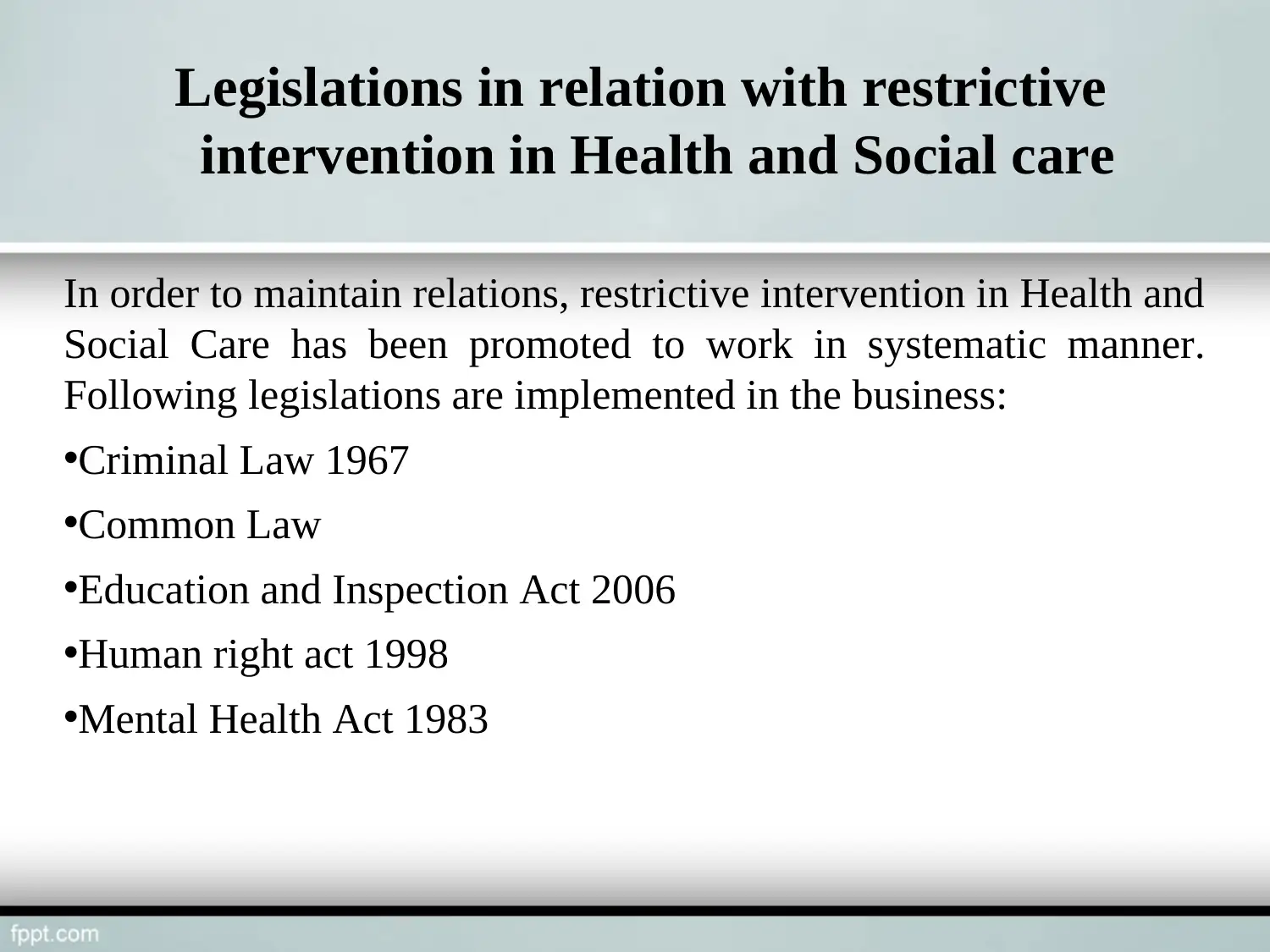
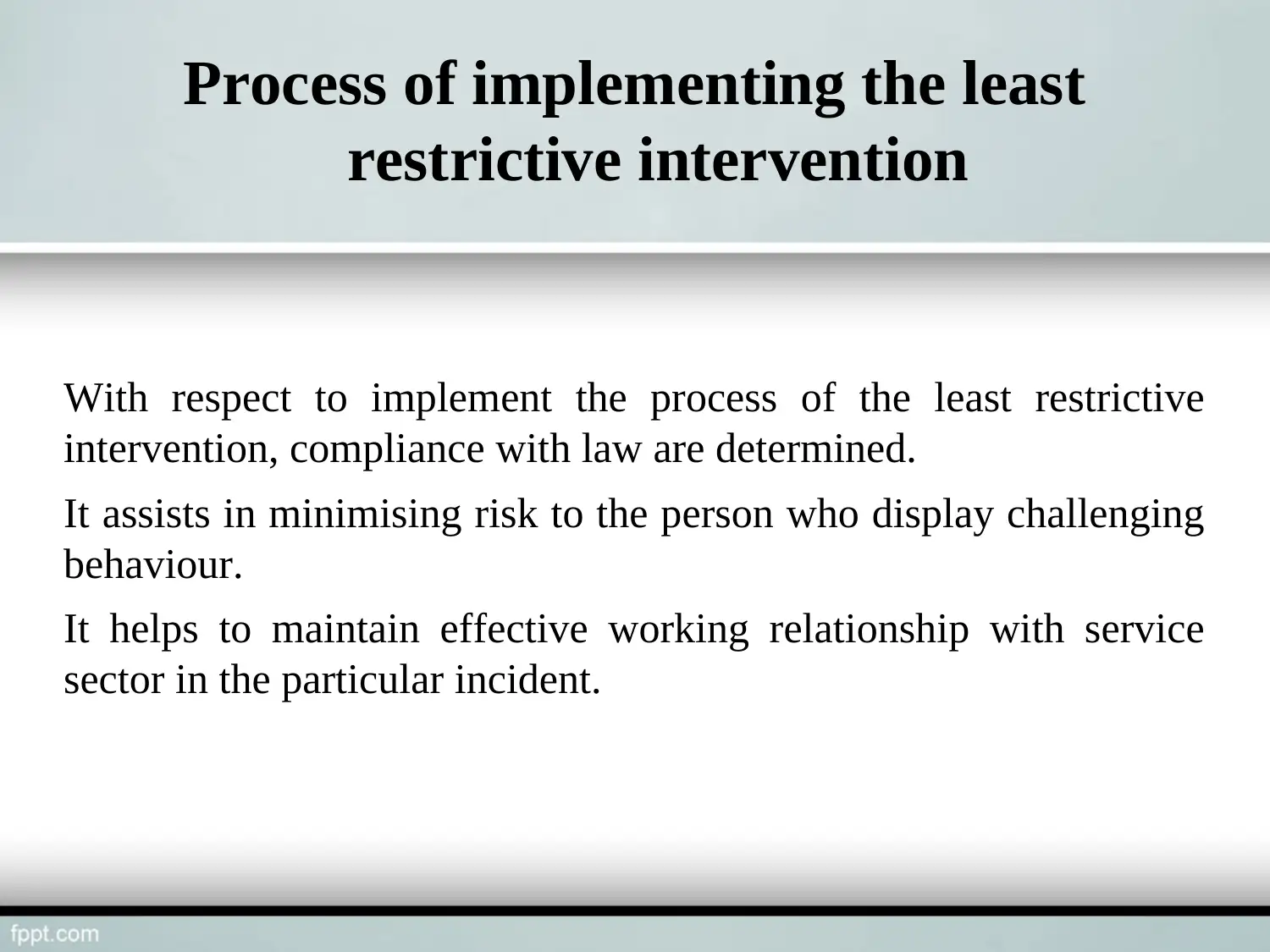

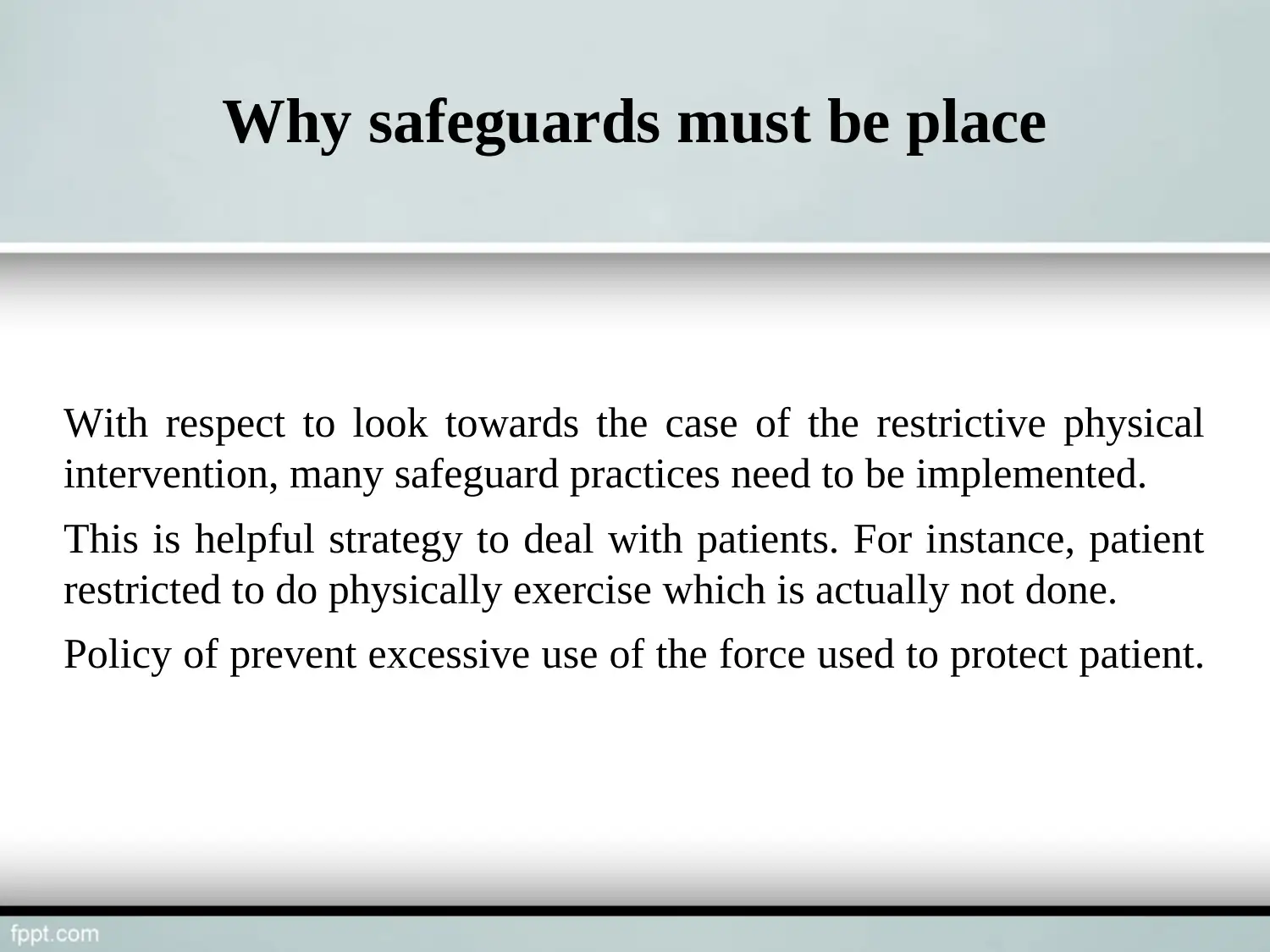
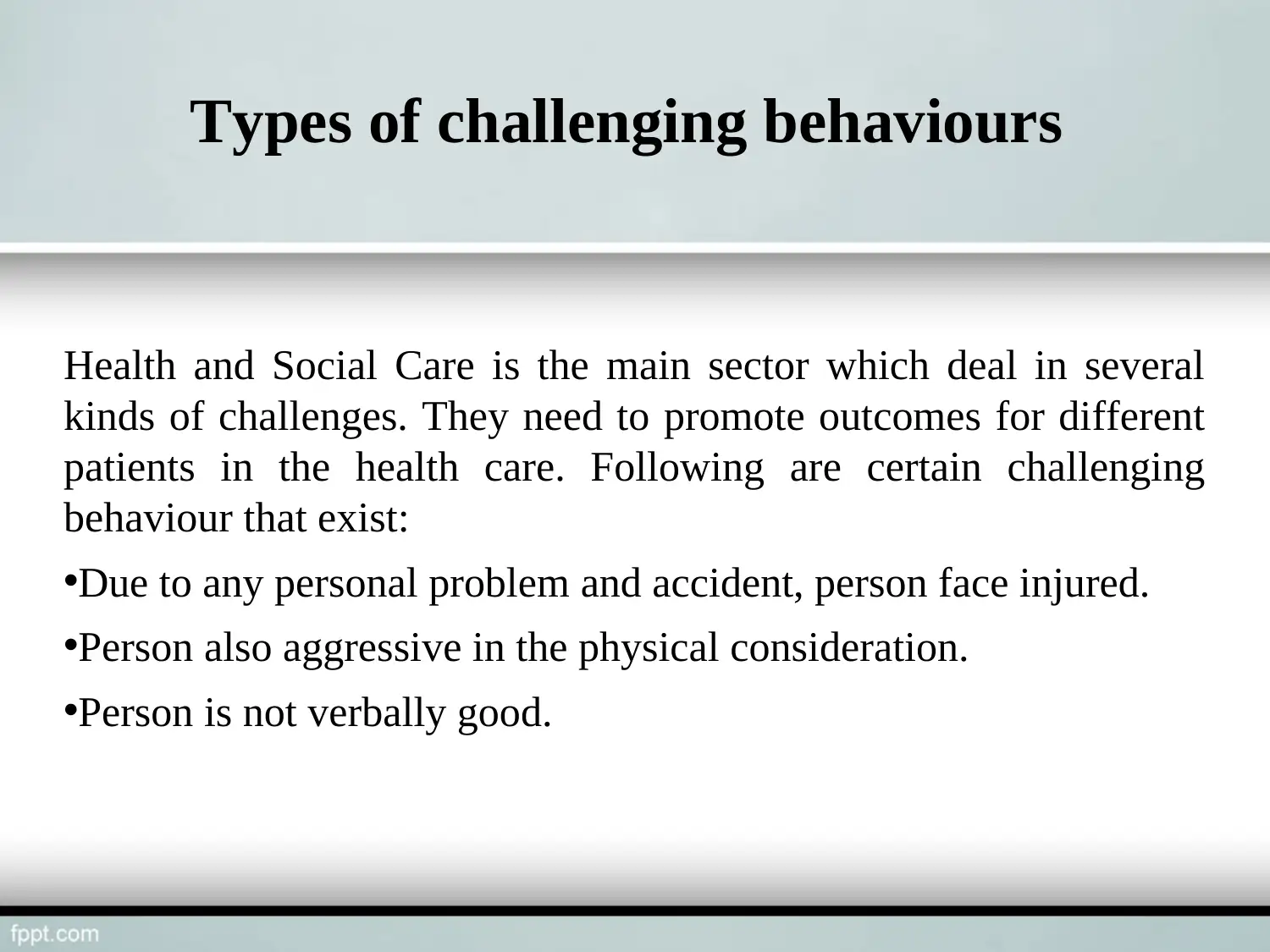
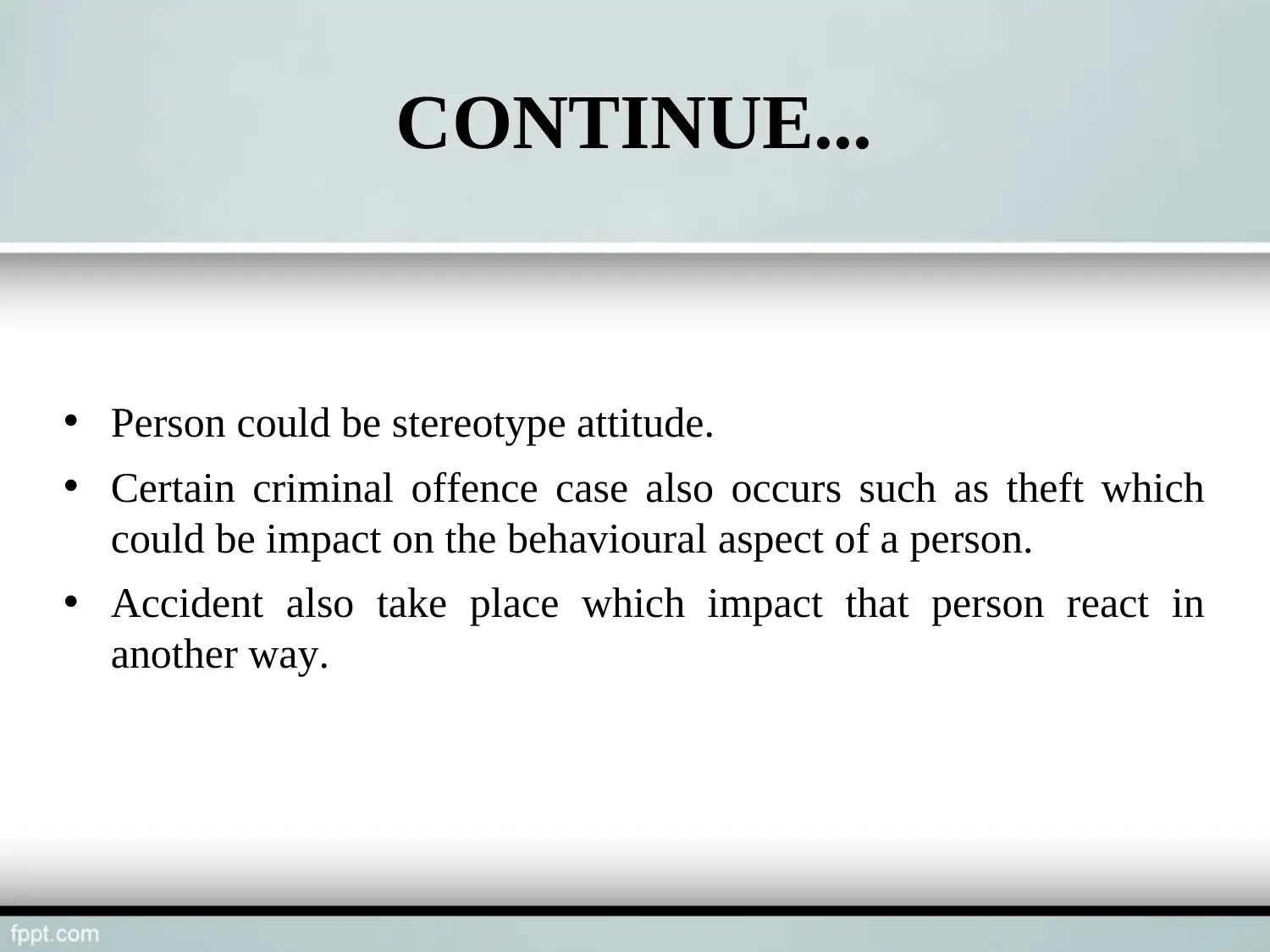
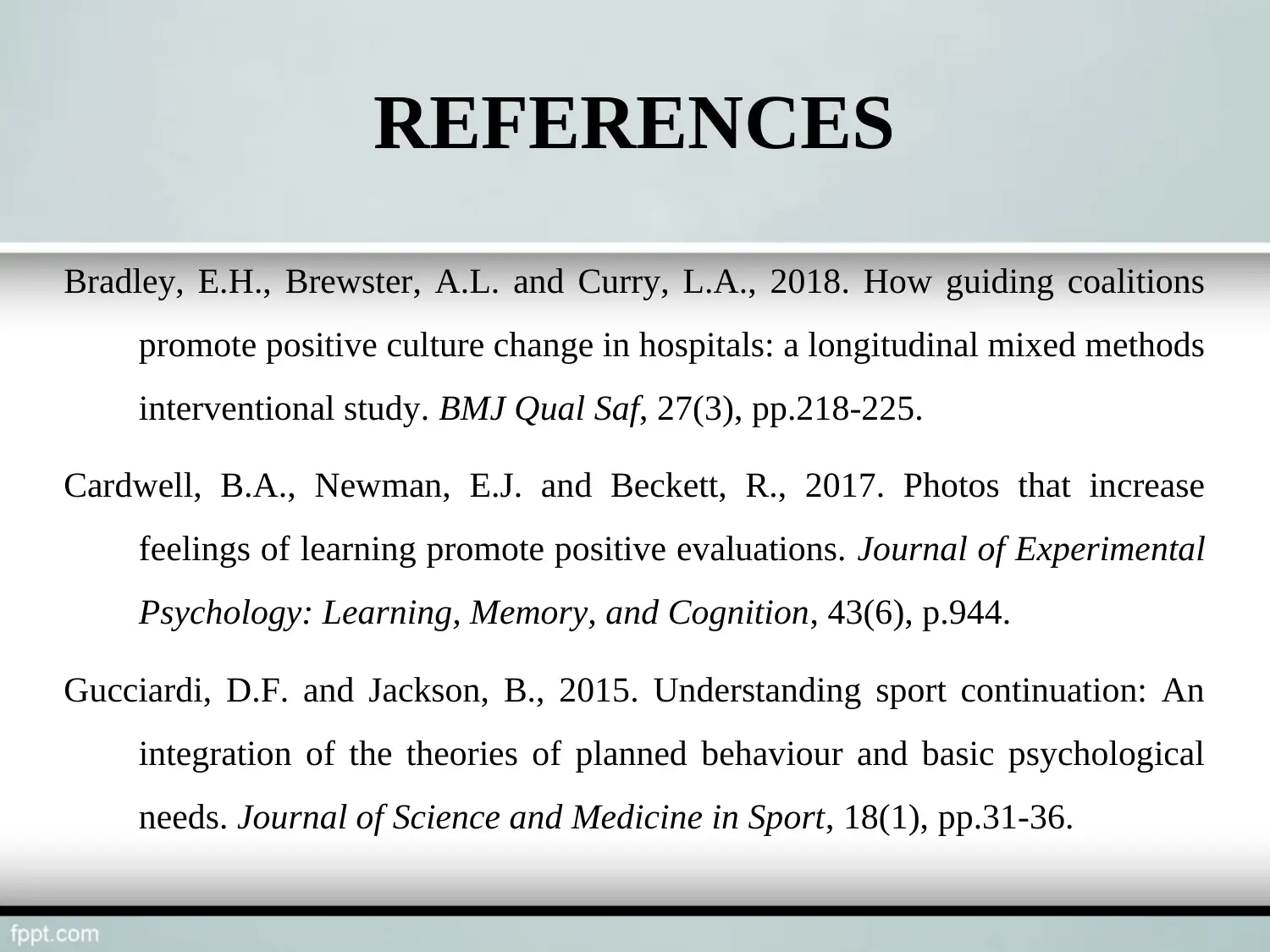
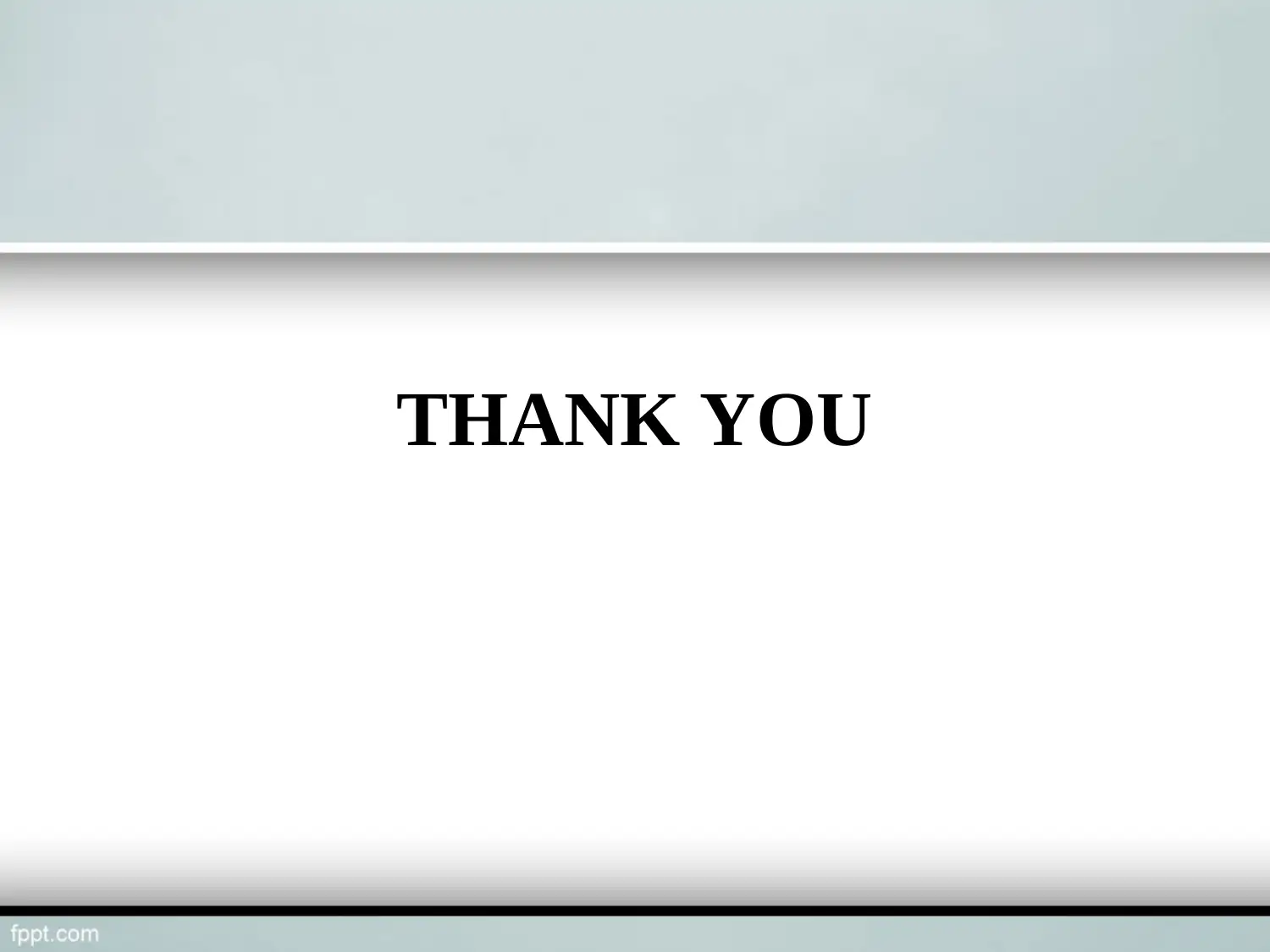






![[object Object]](/_next/static/media/star-bottom.7253800d.svg)